Feet with long spiky parts aimed at your face could be avoided by raising the pan of chicken nibbles, trying not to rain them everywhere. In the absence of the old saucepan, a broom, a rake a handful of weeds or a broken shovel were sometimes employed. We never hit Silver Boy with these items, they were merely shields. At this point he only attacked when cornered, which in the ex-aviary that was their fairly cramped night-time home, could be forgiven.
Silver Boy calmed down a bit when we converted the smaller lambing shed to a new chicken house, chosen because it followed the principle of least effort in that it already had fox-proof wiring. With a bit more space however, SB then discovered he could get a run-up. Our insurance didn't cover getting anyone else to feed the feathered fiend should we go on holiday, and an assortment of makeshift long-distance feeders and chutes proved difficult. The gentle Hamburg ladies didn't cause half the anxiety their leader did. The day he discovered the joy of ambushing us from random garden beds we knew we had to take more than evasive action.
We couldn't inflict him on anyone else, err... give him away of course, or at least not to anyone with eyes they valued. With such an aggressive nature it wasn't ideal to breed from him and while the rooster raids increased so did the risk of injury, to him as well as us. Sadly, there was only one real option so he is now harassing some celestial chicken-feeder in the great garden in the sky. Meanwhile, one lady-chicken had been irreversibly injured and sent off to the same starry garden, another became ill with some sort of virus that did not respond to antibiotics, a prolonged hospital stay, a cosy convalescent home, fresh fruit, compost worms, gold-plated premium organic chicken cuisine or any other luxury we could provide, so she was topped as well. Then there were two.
At this point neither remaining chicken felt much like laying and as we realised they must also be about 6 years old we thought perhaps they wouldn't again. We had never had many eggs, only from September to May and only one or two per day. Never enough to sell or give away, and none now for a very long time. Having to buy eggs whilst we kept pet chickens is not the silliest thing we have done, but explaining it became awkward. Enter new chickens to perform this role.
When the first three arrived they looked around, sat down and began to lay eggs. Three every day. It was very nice having eggs, we could even make up a dozen sometimes, if we didn't eat too many for breakfast. Some to give away or sell now seemed a possibility. Asking just three chickens to up production seemed a bit unfair, after all they had got on with the job promptly and without questioning management. The only real drawback was the way they bullied the older, original hens around, took all the food first, monopolised the water trough, chose the best bunks, that sort of thing.
To save the old hens losing too much weight, sleep and feathers, we separated them and moved them yet again. The new hens got four more sisters. It was planned to be three more but I pleaded for a white one as well and got it past SO while he was in a good mood after scrambled eggs on toast. We now (touch wood) get 7 eggs a day from our 7 beautiful commoner, non-purebred, working-class hens. Quiches, cakes and souffles abound.
As spring sprung and the two last Hamburgs stopped their nomadic existence around the various sheds and chicken houses, they settled down, scratched about in the sun and started clucking loudly to announce eggs. From both of them.

.jpg)





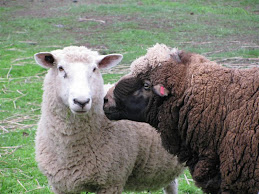.jpg)

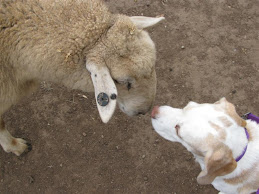.jpg)

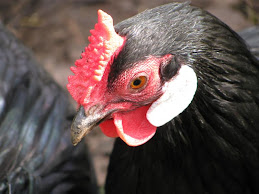.jpg)
.jpg)
.jpg)
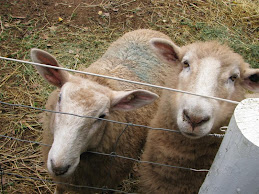.jpg)
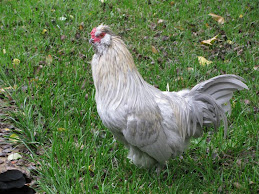.jpg)